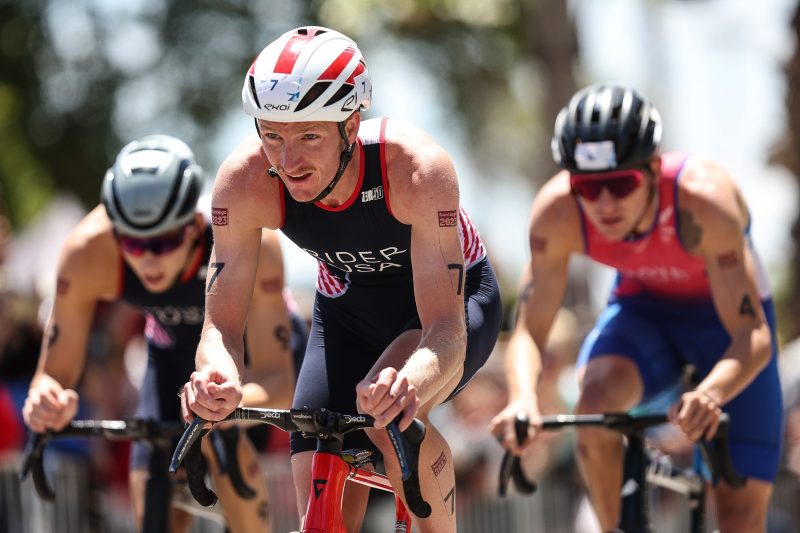PARIS − If you’re planning on shaking hands with American triathlete Seth Rider anytime soon maybe think again − or at least ask him if he washed them when he last went to the bathroom. He admits he may not have.
Rider was among several U.S. Olympic triathlon team members who spoke to the media Saturday about new water-quality tests in the river Seine, which organizers want to use for the triathlon event. The results, released Friday, showed E. coli bacteria levels in the river fell back to below standards needed to authorize those competitions.
Scott Schnitzspahn, the team’s ‘high performance’ general manager, said he was getting updates on the Seine’s water quality each day at 4 a.m. He was also monitoring rainfall in Paris since weather, scientists say, is deeply linked to water quality. Friday’s opening ceremony was a spectacle. It was also rain-soaked.
2024 Olympic medals: Who is leading the medal count? Follow along as we track the medals for every sport.
Still, Rider and the other athletes had their own ideas about how best to prepare to swim in a body of water that’s known for snaking its way around Paris’ many attractions − from fashion to gastronomy, from art to culture − but isn’t exactly synonymous with getting wet, whether for leisure or in the interest of being an Olympic champion.
Taylor Spivey, 33, said she, like a lot of her teammates, was upping her intake of probiotics − live bacteria and yeasts that can aid good gut health and ‘help us withstand any kind of sickness that comes our way.’ Morgan Pearson, 30, said he’d heard consuming a lot of carbohydrates might be the answer to a dirty river.
Rider, 27, had a tactic that drew some chuckles from his teammates and a raised an eyebrow or two from the press.
‘We actually raced here last year in the test event,’ he said. ‘I don’t think anyone got sick after that, which can’t be said about all the races we do. In preparation for this race, I knew there was going to be some E.coli exposure. So I’ve been trying to increase my E.coli threshold by exposing myself to a bit of E.coli in day-to-day life.’
How does he do this?
‘It’s a proven method. Backed by science,’ he said. ‘It’s just little things, throughout your day. Like not washing your hands after you go to the bathroom and stuff like that,’ he said.
Rider appeared to be referring to a kind of E.coli micro-dosing regime, to build up his tolerance.
E. coli is found in many places like the intestines of people and animals. Most kinds of E. coli are harmless. Some can make you sick. People can get infected from E. coli through contaminated food or water or contact with animals, environments or other people. The best ways to prevent E coli infection is handwashing, proper food preparation and avoiding drinking unsafe water, according to the U.S. Centers for Disease Control and Prevention.
If Schnitzspahn had thoughts on Rider’s method − whether it was a high-performance friendly one − he didn’t say. He said there is a Plan B if the river tests results don’t improve. Plan B is delaying the triathlon by one day.
There’s also a Plan C. The ‘tri’ in triathlon becomes a ‘du’ − the swim gets dropped.
‘We’ll be ready no matter what,’ said Schnitzspahn. ‘Athletes are flexible. These things happen in our sport.’
Spivey added she hoped there weren’t any ‘crazy rain storms’ before the triathlon events, which start July 30.
‘I also hope there’s no sharks like we saw in that Netflix (movie),’ she said, referring to ‘Under Paris.’ It’s about a deadly super shark rampaging in the river Seine and an international triathlon about to take place in the city.’
The USA TODAY app gets you to the heart of the news — fast. Download for award-winning coverage, crosswords, audio storytelling, the eNewspaper and more.
Follow Kim Hjelmgaard on social media @khjelmgaard






